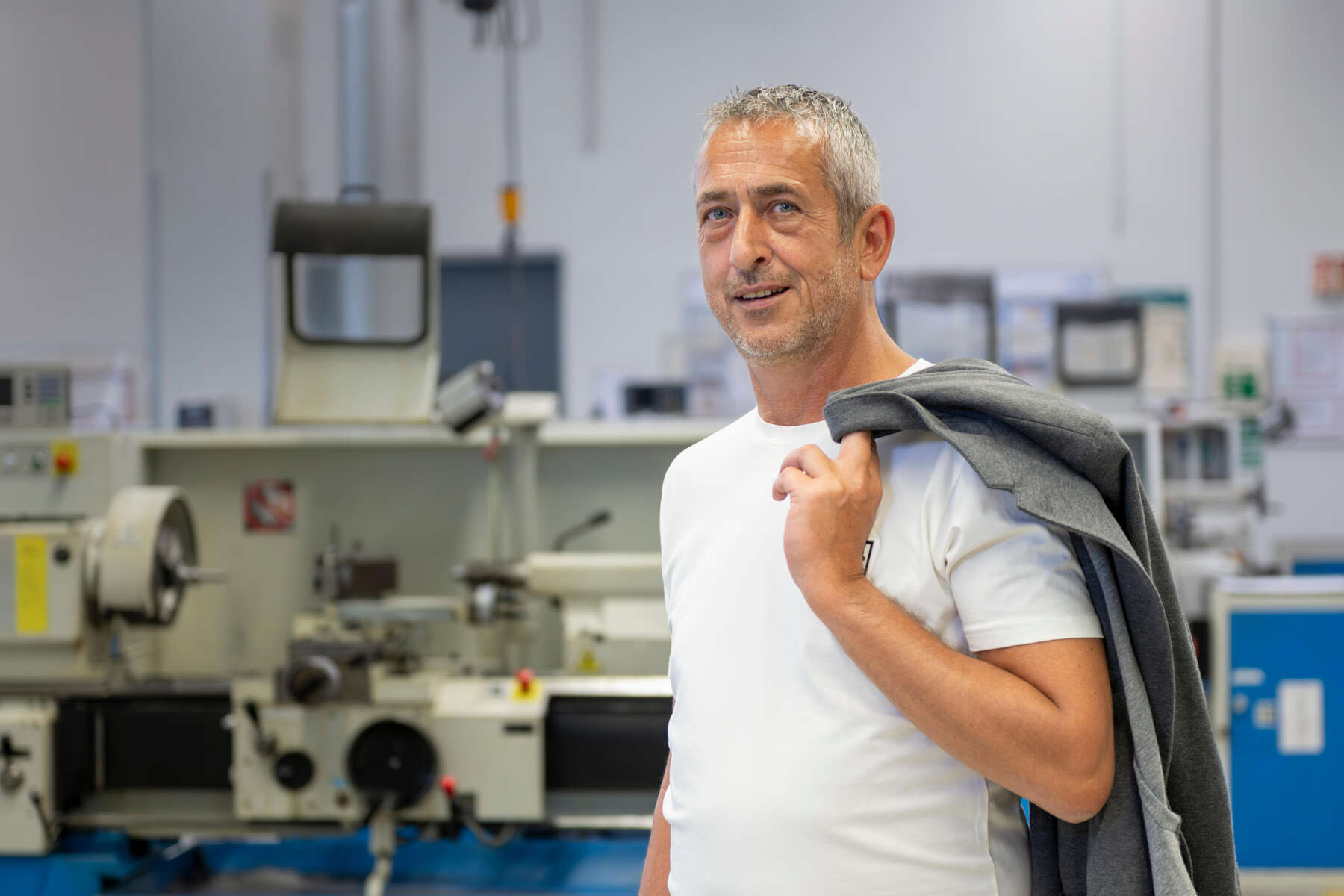
KSB apprenticeships: "Good trainers require empathy."
What distinguishes a KSB apprenticeship from those of other companies?
For us, people come first. We take our apprentices seriously. Accompanying them in this important phase of the lives is what we are about. That's why our apprenticeship concept across all sites not only focusses on learning specialist knowledge and skills but also includes personality development.
What does this concept look like in practice?
A lot of projects we conduct with our apprentices are based on outdoor education. The apprenticeship starts with our opening seminar, where we might tramp up the Brocken mountain, for example, so the apprentices establish a sense of belonging within the group. Often, we participate in sports events, such as a fun run organised by the company or other organisations or the "Run against racism". This is not only intended to enhance physical fitness but also for the company to act as a beacon. Another example is an apprentice exchange we organise with a nursing home to provide a change of perspective. We also frequently participate in social projects, for example, we once set a whole week aside to repair a kindergarten's scooters and tricycles. Very special are our Azubifit seminars dealing with healthy nutrition, stress management and ergonomics.
For all these projects coordination and exchange of experience with the other Heads of Vocational Training at the Frankenthal and Pegnitz sites is key for me. Just how important apprentices are to KSB is reflected by our facilities, for instance by our training centre with great training and social rooms, and by the state-of-the-art machinery in the training workshop. Or by providing every apprentice with a free tablet, enabling an almost paperless apprenticeship.
What does this training concept mean for your apprentices?
It means they are happy in the team they work with. We receive consistent feedback from our interns: "I was impressed by how I was treated here." This is how we can win young people for our company. We often compete for apprentices with companies such as Porsche, BMW and BASF. Our current apprentices play an essential role in winning new apprentices for our company – because they look after the interns and make them feel welcome.
What do you think makes a good trainer?
The role of a trainer has changed from being an autocrat to being a companion. Being able to base decisions on individual situations is important. On the one hand, a trainer has to have empathy and enjoy approaching young people, talk with them and support them. On the other hand, a trainer also has to be very strict: zero tolerance applies to occupational health and safety. And last but not least, a trainer requires a lot of expert knowledge to gain acceptance.
KSB offers a whole range of vocational apprenticeships. How can someone who has just left school choose the right vocation?
The royal road to finding the best match is to do an internship at KSB. We put a lot of effort into winning young people for an internship, where we show them the different professions at KSB and what apprenticeships we offer. For example, I might ask an intern if they feel like using a lathe to get to know the profession of a metal-cutting mechanic.
What are your criteria for selecting apprentices?
First and foremost the person – that is absolutely essential for me. I observe people during their internships and assess who would be a good fit. How they come across is important – this starts with a simple "Good morning". Are they open and willing to learn new things? Do they tell us a little about themselves? How do they treat their colleagues? Do they approach others? Do they observe rules, e.g. the occupational health and safety regulations? Do they show interest? Are they skilful? It hasn't always been like that. When I started my position as the Head of Vocational Training 13 years ago, we still based our selection on grades. Our apprentice who attended vocational support programmes for three and a half years and who is now a skilful, recognised and popular employee would not have made the selection process back then due to his bad maths grade. Today I can say, he is a great person and a great fit for KSB.
What do you do outside of your work as Head of Vocational Training at KSB?
I have been a football referee since 1982. That's a great hobby. I was honoured to referee some of my almost 2000 matches at a professional level – including two international fixtures.
Head of Vocational Training and referee – that’s a good match.
That’s true: My skills as a referee also help me in my job. Especially having to respond to situations within a fraction of a second. And sometimes I do have to caution people and hand out cards when rules aren't observed. At the end of the day, it is my job to make sure that everyone finishes their job safely, whether in the training workshop or in the stadium.

